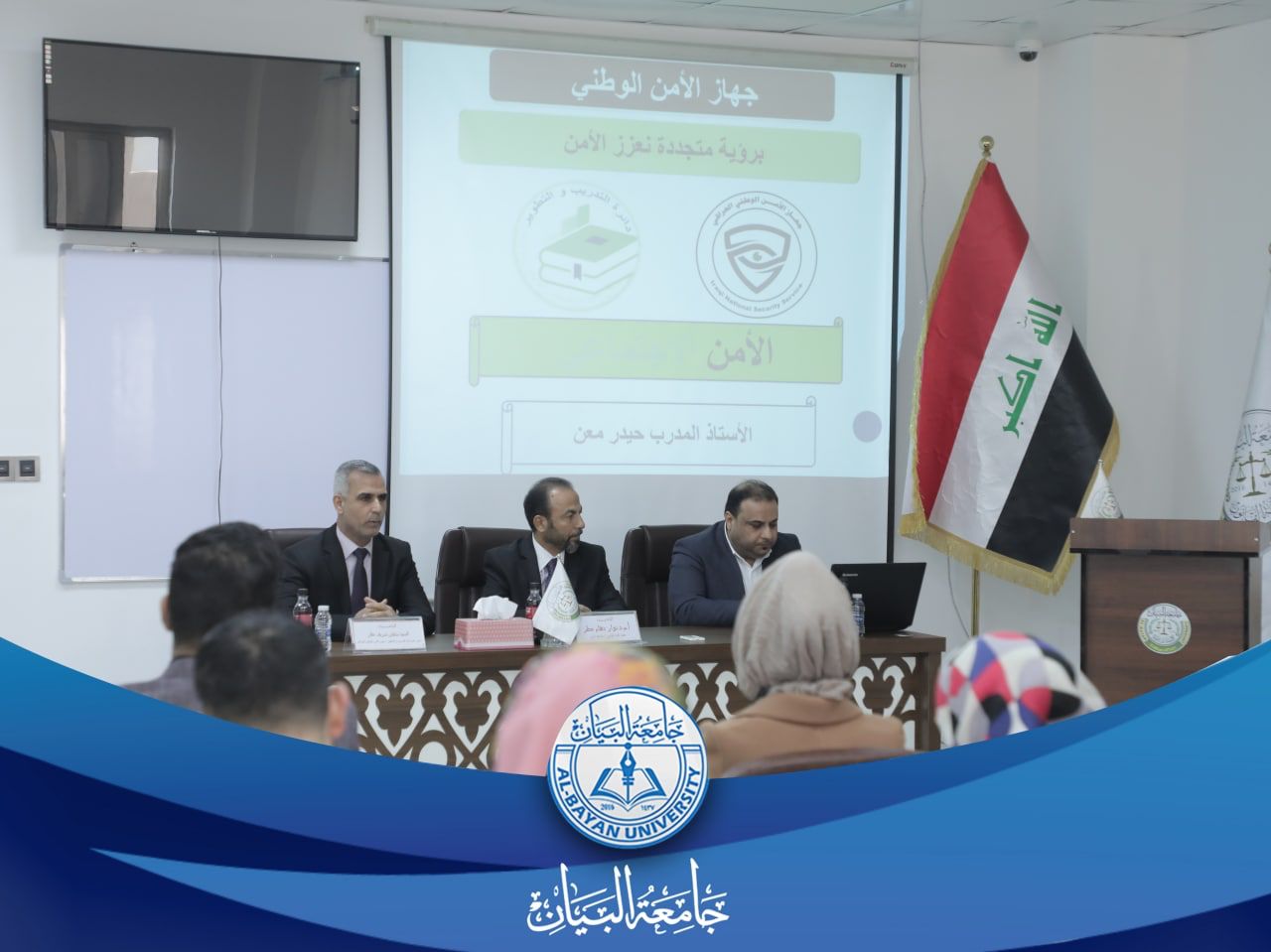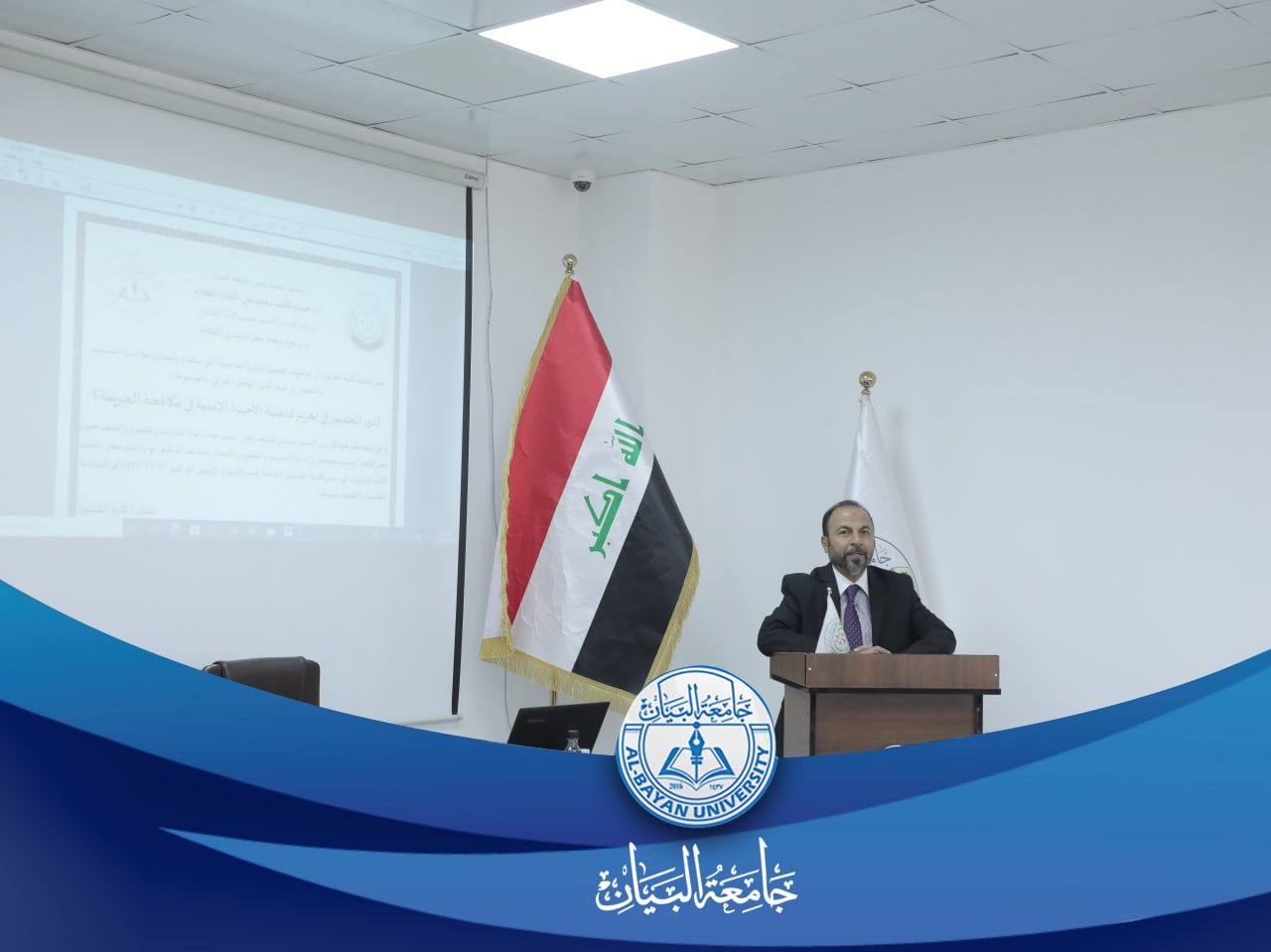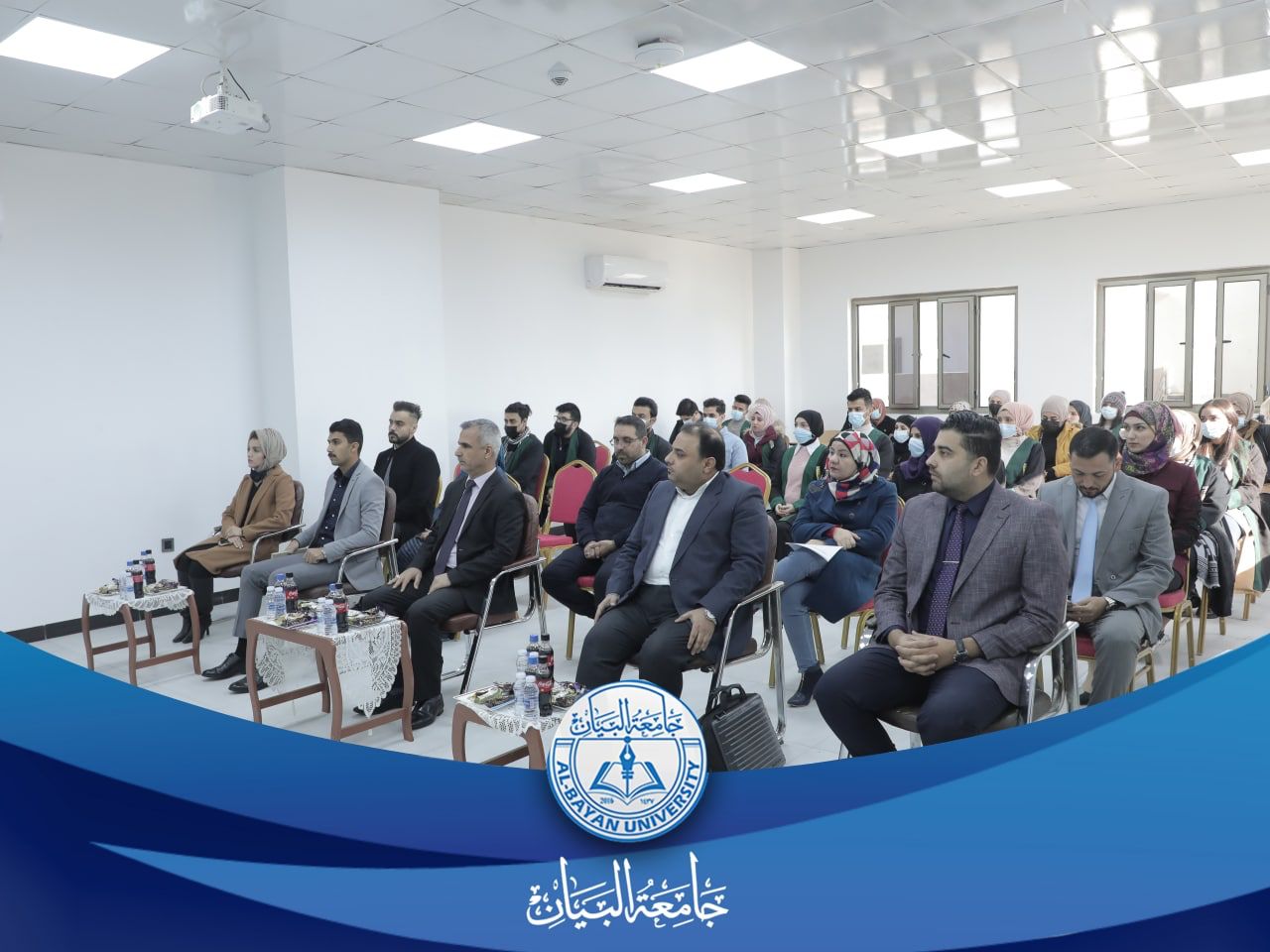Under the patronage of the President of Al-Bayan University, Prof. Dr. Haider Mohammed Ali Al-Emara, and under the direct supervision of the Dean of the College of Law, Assist. Prof. Dr. Nawar Dahham Matar Al-Zubaidi, the College of Law held a seminar with the distinguished participation of the Training and Development Department of the Iraqi National Security Agency, its legal symposium, “The role of the public in enhancing the effectiveness of security agencies in combating crime”, on Monday, 27/12/2021 , at 10:30 a.m.
The seminar included a number of important topics that focused on the importance of strengthening and bolstering the relationship between citizens and security agencies concerning finding information on crime, pursuing criminals, and dismantling criminal hotbeds. The seminar also focused on the importance of the educational role of universities in terms of exchanging information and establishing joint cooperation between security agencies and educational institutions in fighting crime, as the responsibility for following up on crime is not the sole responsibility of security agencies, but rather the cooperation of the public, represented by all categories of institutions, professional unions, and community events, in order to nip the crime in the bud. The seminar was attended by Mr. Salman Sharif Difar, General Director of the Training and Development Department in the National Security Agency, Mr. Haider Maan, a specialized trainer in the Training and Development Department in the National Security Agency, and Assistant Professor Nawar Dahham Matar Al-Zubaidi, Dean of the College of Law at Al-Bayan University. The lecturers discussed in the working papers submitted by them the need to adopt the modern security philosophy and strategy of opening up the security services to various segments of society and achieving genuine partnership between the security agencies and the public in assuming security responsibilities in a comprehensive and voluntary manner. The role of the security agencies is no longer limited to providing security for citizens, maintaining order, protecting people and property and combating crime and deviation. However, its role has extended to other areas, such as security and educational media, aimed at establishing apreventive culture supportive of the safety and security of society in accordance with the requirementsof establishing comprehensive security. The lectures also shed light on the importance of the Iraqinational security services keeping abreast of the rapid changes that have taken place in the generalsituation in the country at various social, political and cultural levels. This has been reflected in thespecific operations carried out by the Iraqi national security apparatus in aborting hundreds of criminalprojects in the field of organized crime, terrorist crimes, cybersecurity, cybercrime, drug crimes,crimes against health, medicine and food, and other crimes, which have had a positive impact on theperformance of this apparatus in light of technological development and cultural openness and therapid transition between societies and societies borders, organized crime, and gangs that behave likethis, because this is the right area for growth and spread. Participants in the seminar concluded that the National Security Agency is an important legal control mechanism adopted to strengthen methods of prevention and treatment in the fight against crime. Intensive field work is necessary to ensure the security of citizens or at the level of human gatherings, especially in the field of educational institutions, given the scientific and intellectual level of students and university professors, and the importance of the role of the National Security Agency in supporting other relevant agencies’ efforts in the fight against crime, or to follow up on deviant behavioral phenomena within the limits of the law and professional ethics, which are translated into close contact with citizens to respond to their security needs and gain their trust and cooperation.
The seminar, which was attended by a group of teachers from the Faculty of Law at Al-Bayan University and guest professors from the university’s colleges, was attended by a large group of students – important interventions, comments, and inquiries from the professors present and students. The seminar concluded with a number of important recommendations and guidelines.




















